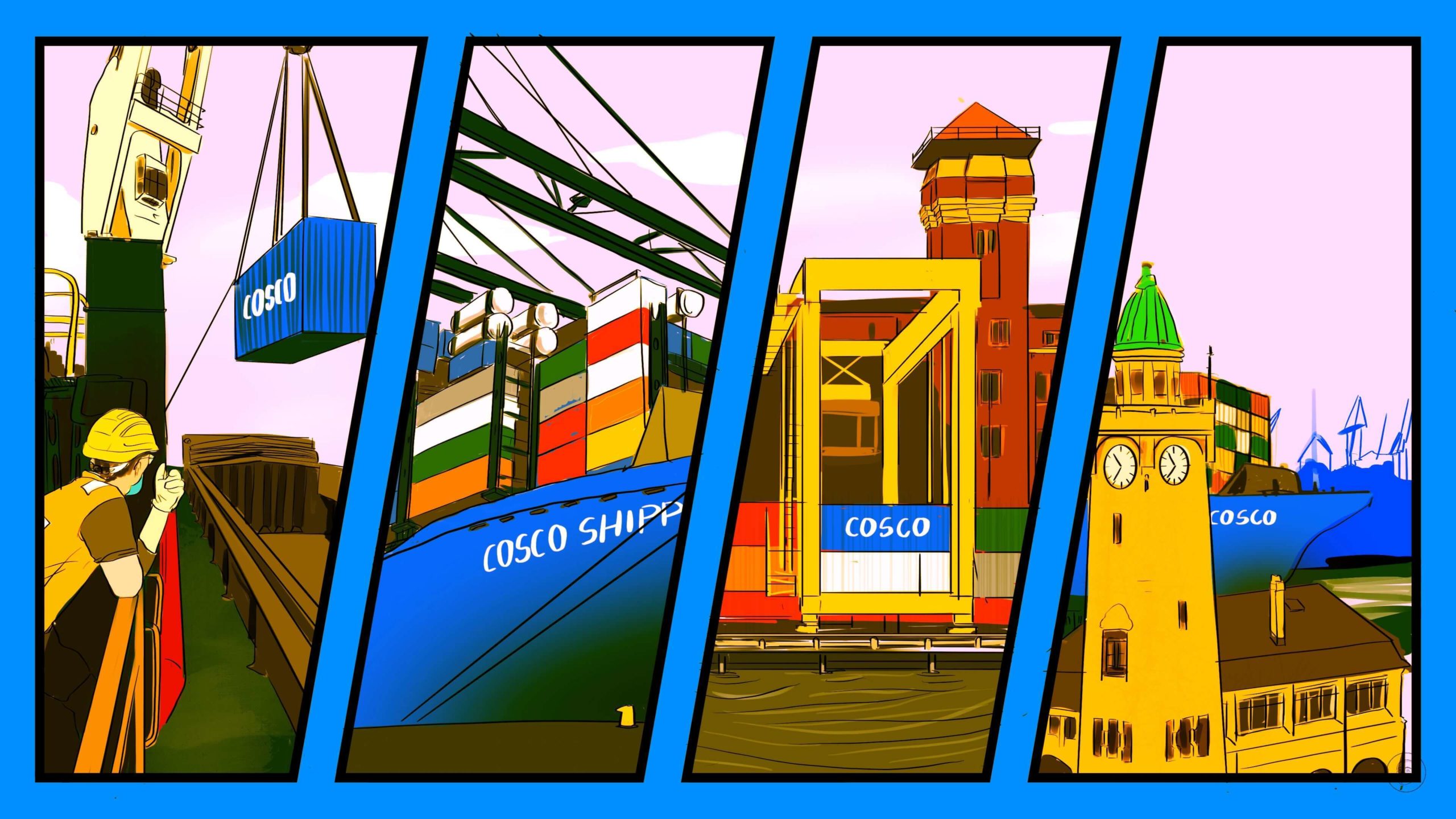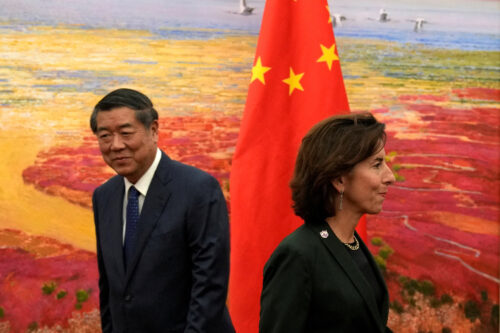Cosco Shipping is making money despite global oceans of gloom
Cosco Shipping has just acquired a large stake in Hamburg Port, and is making billions in a downward-trending shipping freight market.

A new German outpost
On October 26, we reported that the state-owned shipping company China Cosco Shipping 中远海运 had received approval from the German government to acquire a 24.9% stake in the Hamburger Hafen und Logistik (HHLA) terminal at the port of Hamburg. Cosco Shipping already owns the port of Piraeus in Athens, a controlling stake in the port of Zeebrugge in Belgium, and stakes in the two largest ports in Europe at Rotterdam and Antwerp.
On October 28, the spokesperson of the Hamburg Port marketing association, Ralf Johanning, explained to the Global Times that the deal is the result of 40 years of successful cooperation during which Cosco Shipping vessels have docked at Hamburg Port. According to an official from the Hamburg city government, nearly 600 Chinese companies have settled in the city, and the port is now a crucial link in the supply chain between Europe and Asia: Johanning stated that almost a third of all containers passing through Hamburg are destined for or originated in China. The port is also an important rail link between Europe and China. According to the website of the Port of Hamburg, in 2021, there were 290 rail routes departing every week from Hamburg to 25 destinations in China.
Cosco Shipping’s investment in Hamburg Port is the first Chinese investment in a port terminal in Germany, and the deal was controversial in Germany, with both the Foreign Ministry and the Ministry for Economic Affairs and Climate Action not in the supporting camp. Ultimately, Cosco Shipping’s share was pegged at 24.9% as this would ensure that the company does not obtain veto power of the HHLA board of directors and would not be able to influence strategic decision-making at the terminal.
Bull in a bear market
Cosco Shipping’s acquisition comes at the end of a counterintuitively profitable season: On October 28, the company released its financial report for the first three quarters of 2022. The company faced multiple challenges, including COVID, geopolitical tensions, and jammed-up global supply chains. Nevertheless, Cosco Shipping has reported a substantial improvement in overall performance:
- In the first three quarters, revenue was 316.54 billion yuan ($43.61 billion), a year-on-year increase of 36.75%, and the net profit was 97.21 billion yuan ($13.39 billion), a year-on-year increase of 43.74%. In the third quarter alone, Cosco Shipping achieved a net profit of 32.49 billion yuan ($4.47 billion).
- Revenue from container shipping was 297.71 billion yuan ($41.01 billion), a year-on-year increase of 38.35%, while revenue per container on international routes was $2,876 per 20-foot equivalent unit (TEU, a measurement for containers), a year-on-year increase of 47.96%.
- According to one analysis we reported on October 20, Cosco Shipping achieved the second-highest net profit among A-share companies so far in 2022, behind only oil giant CNOOC 中国海油.
Cosco Shipping’s impressive results are all the more remarkable because the shipping and freight market is on a downward trend:
- In October, the abnormal decline of container freight rates continued in what is usually the third-quarter peak season. On October 14, the Shanghai Containerized Freight Index (SCFI) dropped to 1,814 points, and has declined almost 70% from the beginning of the year. The route from Shanghai to the west coast of North America has declined the most, from a high of $8,117 in February to $2,097, a decrease of nearly 80%.
- By the end of the third quarter, the Ningbo Containerized Freight Index (NCFI) stood at 1,416.7 points, a decrease of 65.6% year-on-year (though still higher than 2019 levels), indicating that the market is in a state of oversupply.
New ships, new ports, new tech
With a net profit so far in 2022 of nearly 100 billion yuan, Cosco Shipping is ordering new ships (many of which utilize low-carbon propulsion technology), investing in ports, and developing its supply chain business.
- On October 28, Cosco Shipping announced that it is ordering 12 new methanol dual-fuel powered container ships of 24,000 TEU, at a cost of $239.85 million each, to develop the company’s fleet of green, low-carbon, and smart ships. The ships will be delivered from 2026 to 2028.
- Cosco Shipping is making investments not only in ports in Europe but also in China. On October 28, the company announced the acquisition of a stake of 14.93% in Shanghai International Port Group 上港集团 for 18.94 billion yuan ($2.61 billion), and a stake of 3.24% in Guangzhou Port for 779 million yuan ($107.32 million).
- On October 9, Cosco Shipping announced that the auto company SAIC Motor 上海汽车集团 has signed on as a strategic investor of Cosco Shipping’s logistics company, and the two companies will expand their cooperation on the export of complete vehicles, and the import and export of parts and components.
In China, Cosco Shipping is operating some of the most advanced port operations. Yuanhai Terminal at the port of Xiamen, for example, a subsidiary of Cosco Shipping, is the first 5G full-scenario smart port in China. With full 5G network coverage, the port utilizes advanced technology such as edge computing, high-precision positioning, and artificial intelligence (AI).






